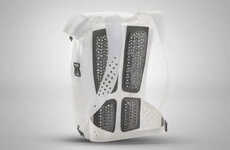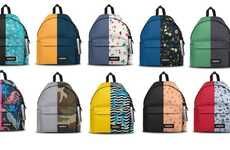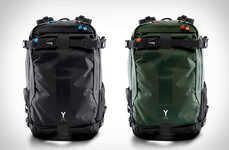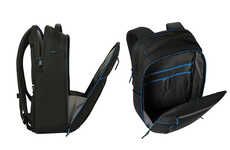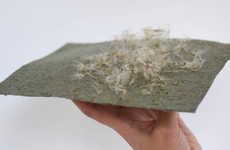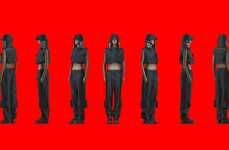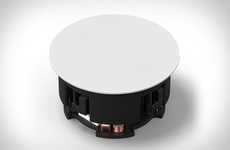
JanSport's Recycled SuperBreak is Made with 100% Recycled Fabric
Laura McQuarrie — April 21, 2020 — Eco
References: jansport & prnewswire
JanSport's Recycled SuperBreak is its first backpack made with 100% recycled fabric. Each Recycled SuperBreak contains the equivalent of 20 plastic water bottles worth of recycled plastic and uses 900 Denier Polyester CORDURA eco-friendly fabrics made of post-consumer waste like plastic water and soda bottles.
As well as working with materials that are already in circulation, JanSport manufactures its Recycled SuperBreak style with renewable energy from a solar power system, the fabric is produced with a solvent-free coating and the product is sold with hangtags made with 60% recycled paper. Notably, the traditional foam used in the back panel and straps of every JanSport pack was removed to make the Recycled SuperBreak fully packable.
Image Credit: JanSport
As well as working with materials that are already in circulation, JanSport manufactures its Recycled SuperBreak style with renewable energy from a solar power system, the fabric is produced with a solvent-free coating and the product is sold with hangtags made with 60% recycled paper. Notably, the traditional foam used in the back panel and straps of every JanSport pack was removed to make the Recycled SuperBreak fully packable.
Image Credit: JanSport
Trend Themes
1. Sustainable Fashion - Creating products using 100% recycled fabric and sustainable manufacturing processes presents an opportunity for disruptive innovation in the fashion industry.
2. Circular Economy - Integrating post-consumer waste materials into product design, such as plastic water bottles, can drive disruptive innovation in the sustainability and recycling sectors.
3. Renewable Energy Integration - Using renewable energy sources like solar power to manufacture products can open up disruptive innovation opportunities in the renewable energy and manufacturing industries.
Industry Implications
1. Fashion - Incorporating 100% recycled fabric and sustainable manufacturing processes into fashion products can disrupt the industry by appealing to eco-conscious consumers.
2. Sustainability - Leveraging post-consumer waste materials and promoting circular economy practices can drive disruptive innovation in the sustainability sector.
3. Renewable Energy - Integrating renewable energy sources like solar power into manufacturing processes can lead to disruptive innovation in the renewable energy industry.
5.5
Score
Popularity
Activity
Freshness



